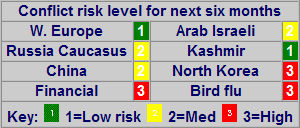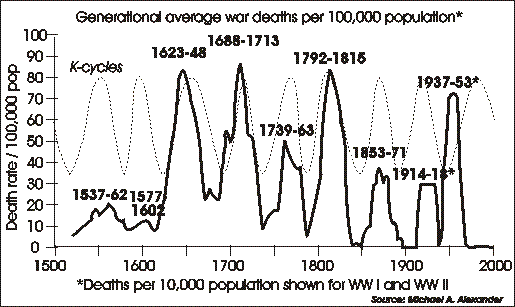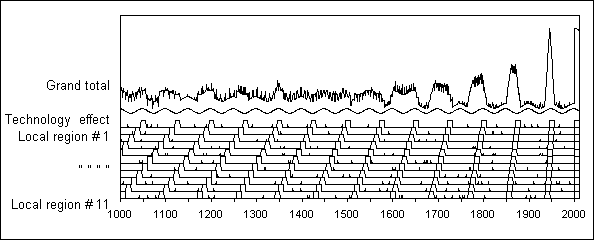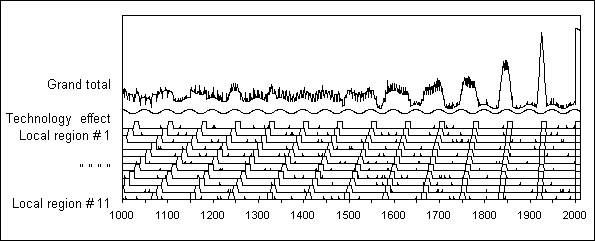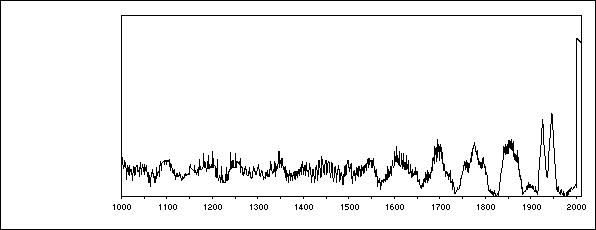Ok, almost done. I have completed the timeline for all Indian tribes, I just have to recheck a couple to make sure I have the dates right. I also want to include an English, French, and Dutch timeline. This has been quite a lengthy project, and I have repeatedly wanted to smash the computer/book due to the lack of information. But I think I've got it right now. I just have to make sure.
Very very interesting. A couple tribes didn't fight wars, but this was because of their numbers and the fact that they were under the influence of another tribe. All tribes fit within the 40-120 year cycle, with most falling between 50-60 years. One mid-cycle period was just over 40 years (I will have to recheck the date). The horrors of war and disease in a mid-cycle period didn't seem to effect the cycle at all.
Expanding on the best turning to fight a war in, there are many wars which support your theory, however I can't believe that EVERY WAR EVER FOUGHT should be fought with mid-cycle energy. However, if the Iroquois hadn't been stupidly raiding American towns during the Revolutionary War (4T for both) they wouldn't have met their bloody end (yet). My question a few days ago had to do with the Mahican timeline and your 2t/4t hypothesis helped me figure it out. The Mohawk, fighting in a 3T against the Mahican (4T), could have been wiped out if they had lost. Instead they stayed back and ambushed the Mahican, and somehow got the Dutch to pull out of the war.
I should have it to you soon.
Matt
- Join Date
- Sep 2005
- Posts
- 3,018
